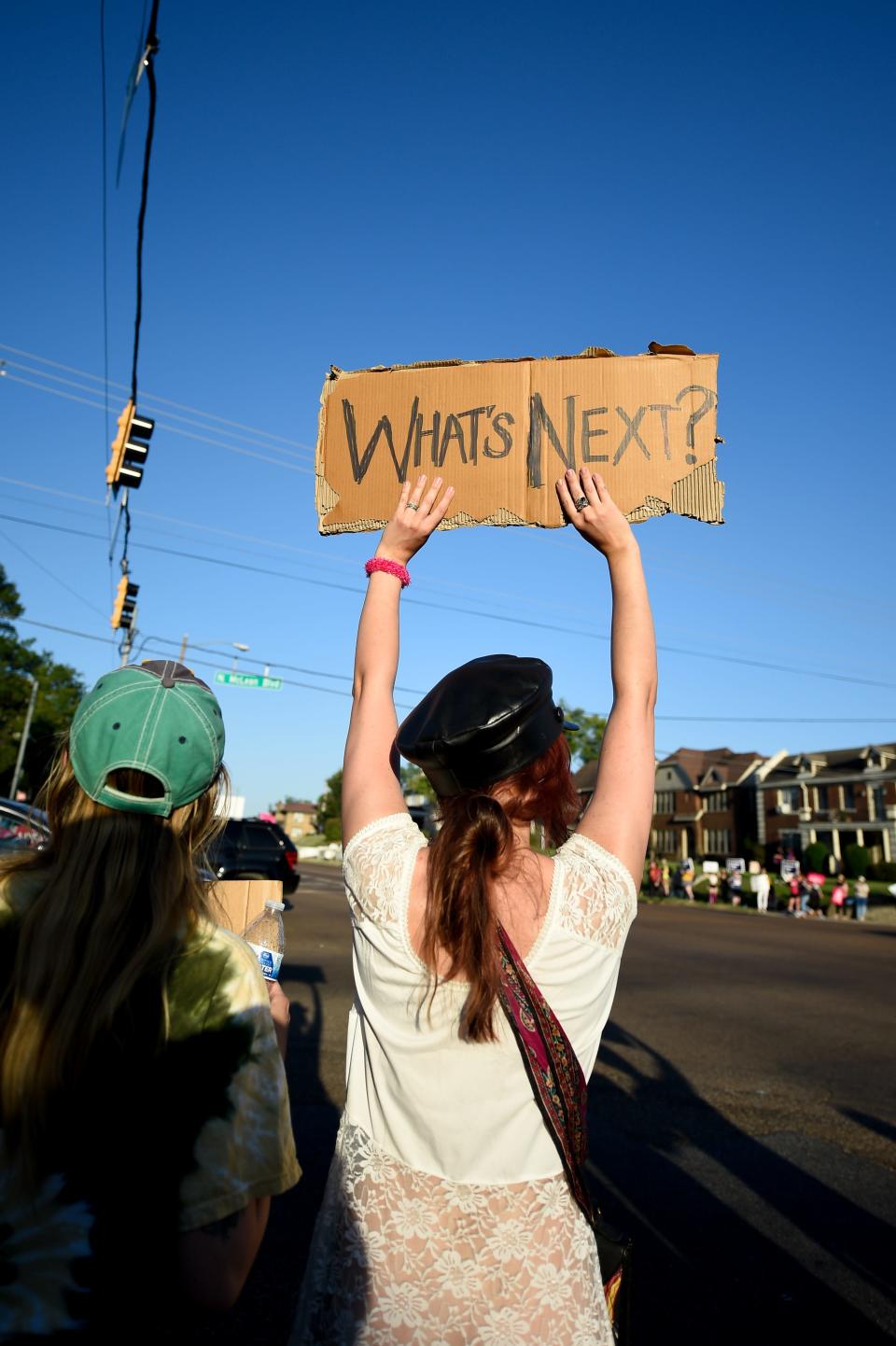How overturning Roe v. Wade stripped sexual assault survivors of agency | Opinion
About one month after I was raped during my freshman year at Brown University, I anxiously sat in my gynecologist’s office awaiting my pregnancy test results.
I was on birth control, so pregnancy was unlikely but still possible. I thought about the worst-case scenario: if positive, I wouldn’t know who the father was; my pregnancy would be a result of the most traumatic night of my life.
At 19, what would I do? Texas, my home state, had just passed the “heartbeat bill.” Would it already be too late?
“Negative.” I exhaled a sigh of unimaginable relief.
Anxiety soon returned. I awoke on June 24 to tightening in my chest as I read the headlines. Roe v. Wade had been overturned.
I closed my eyes and was back in that fraternity basement where I was raped. I thought of the men who had made this decision, many of whom had themselves been credibly accused of sexual assault. I felt violated, once again.
Hear more Tennessee Voices: Get the weekly opinion newsletter for insightful and thought provoking columns.
Defining rape-related pregnancies
Survivors of campus sexual assault must already navigate an immensely traumatic, personal, and invasive process with little to no help from their universities.

Adding an unintended pregnancy, a product of rape, makes the process almost unbearable.
In America, roughly 3 million women experience rape-related pregnancies (RRPs) during their lifetime. For women raped by an intimate partner, about 30% experience some sort of reproductive coercion by that partner; their partner may have been trying to get them pregnant, attempted to coerce them to stop using birth control, or refused to use a condom.
When considering that nearly 1 in 5 college women are sexually assaulted before graduation, and that approximately 24% of people who sought abortion in 2014 were students, the number of college women who seek rape-related abortion is staggering. So, what happens when post-assault medical care becomes illegal?
Sign up for Latino Tennessee Voices newsletter: Read compelling stories for and with the Latino community in Tennessee.
How student rape survivors are affected
A critical aspect of the healing process for rape survivors is regaining a sense of agency over one’s own body. After an assault, it is imperative that the survivor feels they can make decisions about their own body and their own healing.
This agency is once again stripped from the survivor, who becomes pregnant, with the overturning of Roe v. Wade.
The effects of this ruling are particularly compounded for student survivors. Colleges already lack essential support for survivors, including a lack of accountability of perpetrators, inadequate advocate staffing and training, along with insufficient accommodations for those healing from an assault.
For survivors whose assault results in pregnancy, resources are even scarcer.
In any of the 30 states with limited or abolished abortion access, students seeking abortion could be required to locate either unsafe abortion or travel to the closest “safe state,” the former of which could lead to severe injury or death, while the latter could cause immense financial strain and a leave of absence.
For many students, a leave would significantly affect scholarship, financial aid, and student loans, creating greater hardship. All this does not begin to consider the survivor’s traumatic emotional damage.
Sign up for Black Tennessee Voices newsletter: Read compelling columns by Black writers from across Tennessee.
The most marginalized are hurt the most
So, consider who is most affected by Roe’s reversal. Black women and women of color are more likely to seek abortion due to lower access to effective contraceptives and higher rates of victimization; they are also three to four times more likely to experience maternal health complications than white women. And over one-third of transgender, nonbinary, and gender-nonconforming people who become pregnant consider ending the pregnancy due to lack of insurance coverage and gender-affirming care, among other reasons.

They are disproportionately targets of sexual violence.
Living as a survivor of campus sexual assault is an immense burden which is more than enough to force students to flee school. For many survivors, overturning Roe v. Wade has made this process even more difficult. Now, the threat of having to carry a baby to term, or leave the state to seek an abortion, adds new challenges, especially for those already marginalized.
After I was raped, I was fortunate not to have rape-related physical complications, allowing me to focus on my healing.
Luck should not be a determining factor when it comes to survivor’s health and welfare, however, and we must fight to protect those who find themselves forced to decide how they will proceed with a rape-related pregnancy. Rape is already amongst the most extreme violations of a survivor’s body. Please, do not violate us any further.
Resources
To speak confidentially to a trained staff member from a local sexual assault service provider call 800-656-HOPE or visit https://hotline.rainn.org/online.
For more information and resources on campus sexual assault please visit https://endrapeoncampus.org or https://www.itsonus.org
For more information on national reproductive rights please visit https://reproductiverights.org
Katiana Soenen, a Texas resident, is a student at Vanderbilt University majoring in medicine, health and society and public policy studies with a minor in human organizational development. She has been working in South America as a project director for a non-profit, youth-empowerment organization.
This article originally appeared on Nashville Tennessean: Overturning Roe v. Wade stripped sexual assault survivors of agency

